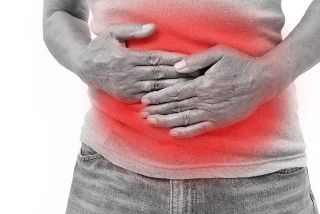 A recent article in the World Journal of Gastroenterology reports that several studies from 1966 to 2013 show statistical significance of acupuncture in treating IBS.
A recent article in the World Journal of Gastroenterology reports that several studies from 1966 to 2013 show statistical significance of acupuncture in treating IBS.
HealthCMI showed in another study that acupuncture effectiveness had 65% of participants demonstrating a “marked effect”. That means they had a good improvement in their symptoms, whilst another 30% had a very good improvement. Our experience at this clinic with numerous patients also reflects that.
A randomized controlled trial in year 2000 (¹) found significant improvement in the quality of life and symptom scores of IBS patients who were treated with acupuncture. Reduced perception of stress and pain were shown to be maintained four weeks after the treatment period. This was in contrast to a group of patients who were treated with relaxation therapy and experienced initial benefits that diminished after the treatment period.
The British Acupuncture Council says there is consistent evidence that a course of acupuncture improves IBS symptoms and general wellbeing. Acupuncture can be safely combined with Western medicine, and other treatments such as relaxation exercises, herbal medicine and psychotherapy. Working with a supportive therapist can also help people suffering from IBS to change their negative health beliefs and improve their coping mechanisms, which can have a positive influence on both mood and symptoms.
Contact us to discuss how we may be able to help with your symptoms: click here for contact details.
References: ‘World Journal of Gastroenterology‘, HealthCMI, British Acupuncture Council and (1) Lu B, Hu Y, Tenner S. A randomized controlled trial of acupuncture for Irritable Bowel Syndrome. Program and abstracts of the 65th Annual Scientific Meeting of the American College of Gastroenterology; October 16-18, 2000, New York, NY.

